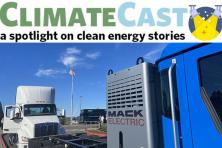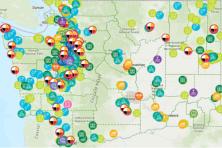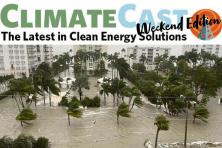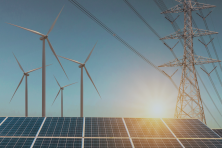|
Right now, you're likely hearing a lot of “imagine ifs” about the COVID-19 pandemic, and what we could have done differently at key junctures. Today marks the 50th anniversary of Earth Day, leading me to other “imagine ifs” of how our environmental movement might also have done things differently. People organized the first Earth Day in response to the horrors of rivers set ablaze and communities choked by air pollution. The first organizers, many of them students, learned from the methods of the powerful civil rights movement. They rooted the message of the first Earth Day in the basics of democracy: hold elected leaders accountable, encourage more folks to vote, and change laws or pass new ones to protect and improve the natural environment. These initial movement-building actions led to critical new laws to address pollution, including the federal Clean Water Act and the Clean Air Act. But over time, the achievements of this movement have not all been simple successes. While continuing to grow, our mainstream white-led environmental movement has largely dismissed and failed to acknowledge the immediate needs, historical contributions, and continued leadership of frontline communities and communities of color who have been most impacted by pollution. We have been mostly focused on our own priorities, not recognizing that incorporating and prioritizing social justice, is not only addressing and solving the climate crisis, but critical to achieving a just, sustainable, and equitable future. Imagine if we all told that part of our story more often? Imagine if fifty years ago, and ever since, the environmental movement had aligned with social and environmental justice groups to prioritize social justice? Imagine if our movement focused on people and communities most impacted (and not just polar bears) as the reason why we should act now for a better future? Imagine if our movement more quickly recognized that communities impacted by redlining, forced urban renewal, and freeway construction would be the same ones now bearing significantly more impacts from air pollution, and people living in cancer alleys would be experiencing higher death rates in this pandemic? So this Earth Day, let’s flip the script and start imagining WHEN. Imagine when we prioritize frontline communities and seek living-wages for workers. Imagine when the historically white-led environmental movement shares its power and prioritizes community approaches to create a clean and equitable future. Imagine when we connect “greenwashing” and “whitewashing.” Imagine when we recognize that Election Day can be our most powerful Earth Day, and we keep working together to ensure everyone has access to their right to vote. During this challenging time, there is good news: that “when” is right now. We can look back and reclaim the roots of Earth Day. Just as before, we are experiencing social unrest, this time with widening health and social disparities, suppression of voters' voices, along with increased worsening of the climate crisis -- all amidst the immediacy of the global COVID-19 pandemic. It’s a lot to take in. Below are five things you can do to re-establish Earth Day roots to further a better future for all. If you do, please feel free to go further, we’ll go farther together. While there are no longer rivers on fire, our collective house is on fire and we must remember who is inside. |
#1: Foster a thriving democracyRegister to Vote, Register Others to Vote: There are too many intentional and economic barriers preventing far too many from voting and expressing their political voice for what they need in their communities and for their families. Numerous polls show that communities of color, youth, lower income folks, and women are far more likely to be supportive of solutions to pollution. If you know someone who is about to reach voting age, who just moved to your area, or who might need help figuring out how to get over the hurdles to be a registered voter, help out; more people participating in democracy makes for a stronger country and builds greater accountability with our elected officials: |
#2: Contribute directly to frontline communitiesTwo suggestions in the Pacific Northwest: Give to Front and Centered’s Frontline Response Fund: Our friends at Front and Centered have put together the Frontline Response Fund. Front and Centered is a coalition of over 60 grassroots organizations, many of whom are on the frontlines of the pandemic. Supporting the Frontline Response Fund is providing support to hundreds of people dealing with lay-offs, school closures, medical issues and other factors related to coronavirus in communities throughout Washington State. Donate to support the Oregon Worker Relief Fund: Causa, Latino Network, Voz Worker Education Project, and Pineros y Campesinos Unidos del Noroeste (PCUN) have created this fund to get dollars in the hands of Immigrant Oregon workers who are being left out of the Federal Stimulus package. 100% of the donations will go directly to community members in need who cannot access unemployment insurance benefits. |
#3: Connect with others globally for the global crisisDuring this time of physical isolation, it can be harder to remember that many are together in calling for big solutions and bold ideas. Originally the plan for this Earth Day was to have millions gather together in person around the globe to show the demand for a clean and just future. Now, we take it online: Today through 24th, activists, performers, thought leaders, and artists will come together for an empowering, inspiring, and communal three-day live stream mobilization. |
#4: Support youth-led climate organizingThe first Earth Day was led by students, and we’re encouraging everyone to show up online in solidarity of the youth now. Youth around the globe have been leading to remind everyone of the urgency of now with climate action and how we all need #FridaysfortheFuture. Click here to tune in. Our partners at WA Youth Climate Strike are organizing Earth Day Live, a three-day live stream today through April 24 focused on demanding action on climate change, jobs, and justice. The live stream will include training sessions for youth and students, performances, and appearances to keep people engaged, informed, and inspired, with speakers including celebrities, politicians, scientists, and youth activists. |
#5: Share your #ClimateHopeWhen you’re alone and soaking in negative news it can be harder to imagine what we can do together. And for lots of folks we know, the climate crisis might feel too big to also think about while processing the shift of life during the immediacy of a pandemic. Yet it’s critical to remember there are better days and a bright future ahead. |
Image
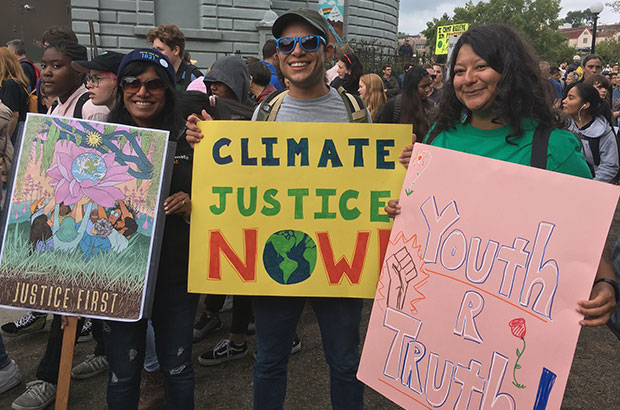
JONATHAN LAWSON
This Earth Day, let's imagine when...

